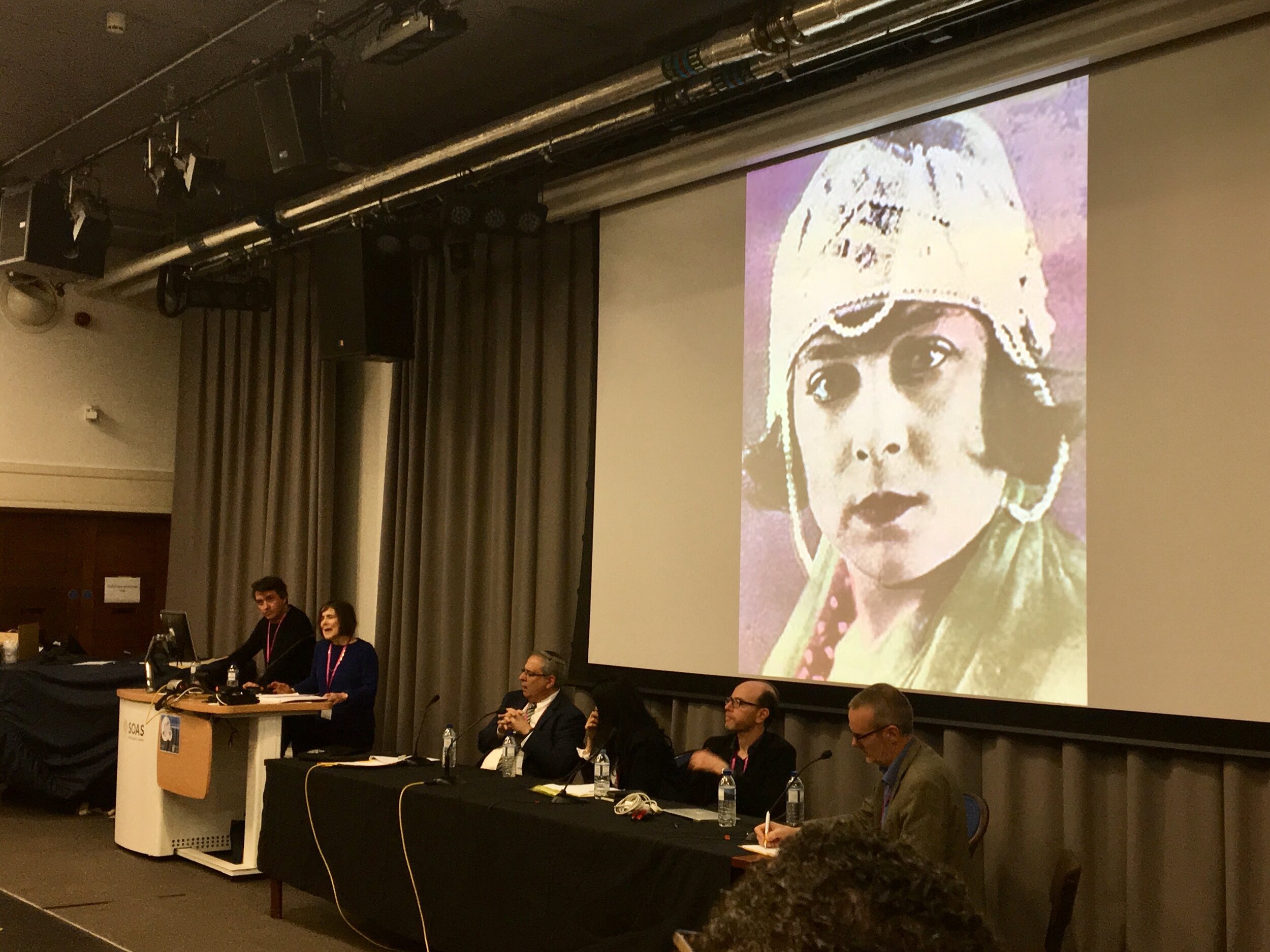Half way through the first ever Yallah: Judeo-Arabic music conference, we report on day one
“In Morocco, in Islam, Jews and Muslims are, in their thousands, enjoying being together. This may not be on the front page of any newspaper or what you watch on the TV, and of course it is not so black and white, but it’s something that should be shared.” Dr Andre Azoulay, counsellor to the king of Morocco, is addressing a roomful of keen listeners at Yallah, a two-day, first-of-its-kind Judeo-Arabic music conference in the UK. “We have a chance here to discuss the relationship between Jews and Muslims thanks to music,” he continues. “I’m saying that not just as a music lover, but a historian, a politician... What we wanted to achieve politically, socially and economically, failed until music entered the stage. So let’s keep in mind the place, role and power of music.”
Dr Ruth Davis discussing Habiba Msika
Over the course of day one we learn that the placement and role of Judeo-Arabic music varies widely. Take Tunisian singer Habiba Msika for instance, who, Dr Ruth Davis (University of Cambridge) tells us, brought songs about the anti-colonial struggle into the Maghreb mainstream in the 1920s. So adored was Msika that when she died at the tender age of 27, 5,000 people attended her funeral.
Elsewhere, we discover from Professor Edwin Seroussi (Hebrew University of Jerusalem) the Yemenite Jewish singers of Fes, Algeria and Tunisia, who championed Arabic music in Israel. Especially popular was Egyptian Jewish singer Faiza Rushdi, who performed alongside Yacov Murad and Moshe Eliyahu entirely in Arabic on mainstream Israeli TV in the 1970s. And on the religious side of things, Dr Merav Rosenfeld-Hadad (University of Cambridge) went into detail about the kind of music used in celebration, bringing together Jews, Muslims and Christians to share in something spiritual.
The JR stand at Yallah
A particular highlight of the conference was hearing Judeo-Maghrebi wedding music by Moroccan legend Haim Botbol and his unfaltering ensemble of musicians. Botbol has been performing since age nine, following in the footsteps of his father, and such is his influence that much of his music has become part of Morocco’s national musical heritage. He performs everywhere from modest weddings to grand gigs at the Royal Palace.
This afternoon we attempted ‘Ya Qalbi Khali L'hal’. Lyric sheets were handed out for the audience to follow in either Arabic or French. “Those who can’t follow the words,” says our presenter Maurice Elbaz, “just sing ooh ooh ooh.” So infectious is the band that we’re ooh-ooh-oohing in no time and fumbling a clap to a 6/8 rhythm – not, Elbaz explains, like the Western time signature, but a much looser one that varies depending on the vocalist’s accent (Moroccan, Algerian or French). It keeps things lively to say the least.
While the rest of the afternoon isn’t nearly as interactive, it’s certainly absorbing. It’s almost sad to think that were the Jewish Music Institute not hosting this two-day extravaganza, many in the UK would know little to nothing about this rich subsection of Jewish music. We covered it in more detail in the January 2020 issue of JR (also available on the JR blog), but in the coming days we will also be taking a closer look at certain events from both days of Yallah and doing our bit to share this enchanting world with an audience as diverse and discerning as Judeo-Arabic itself.
By Danielle Goldstein
Yallah: Judeo-Arabic Music Workshop and Conference runs Sunday 9 & Monday 10 February. 9am-10pm (Sun) & 10am-5.30pm (Mon). £72, £40 (Sun), £30 (Mon). SOAS University of London, WC1H 0XG. www.jmi.org.uk



